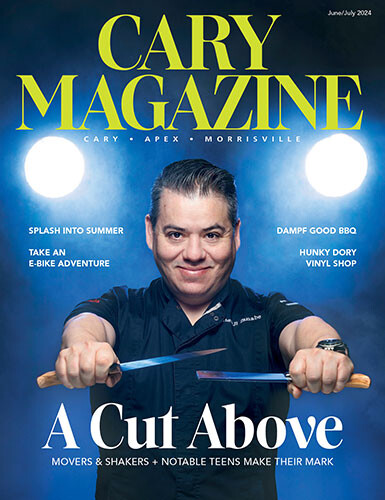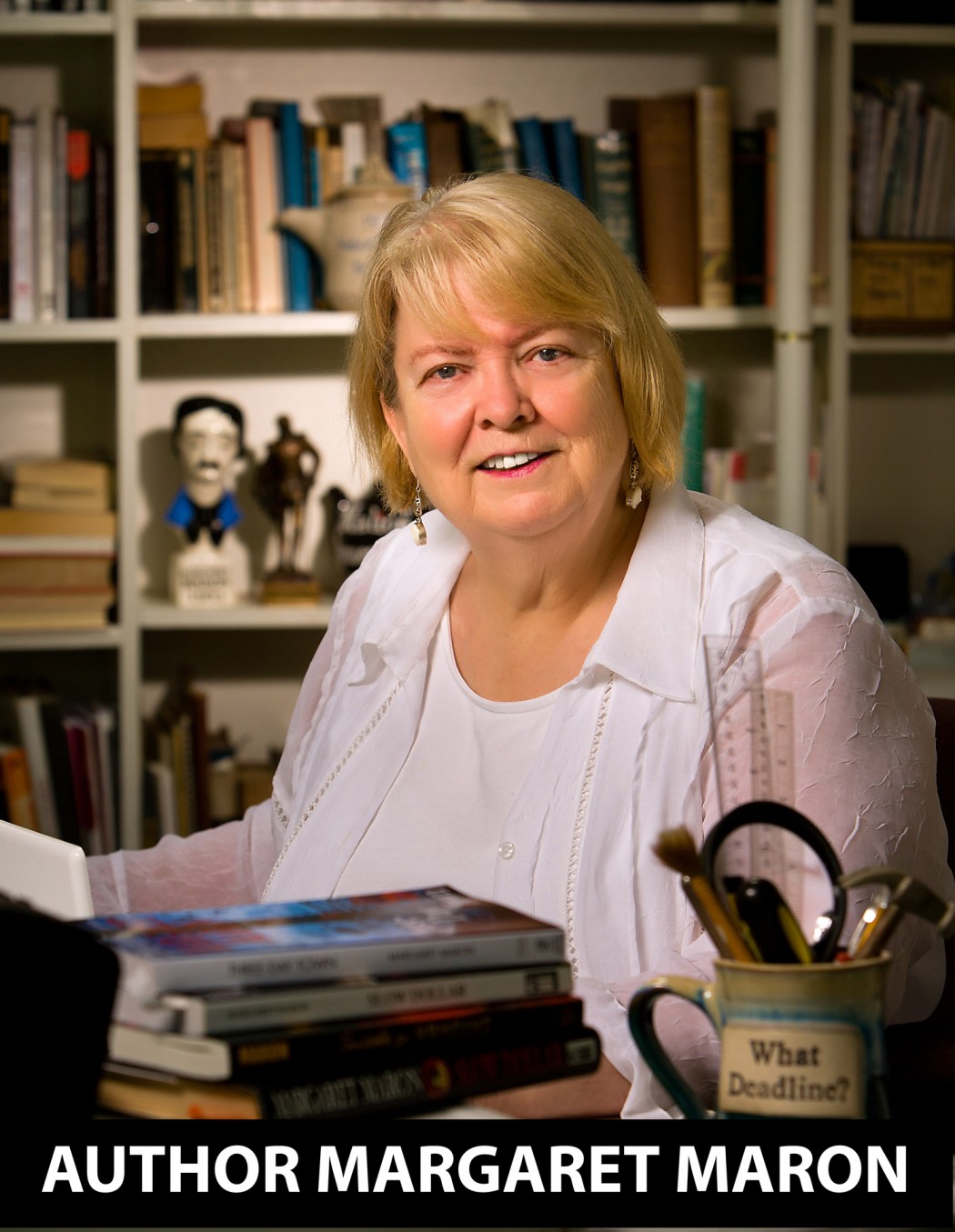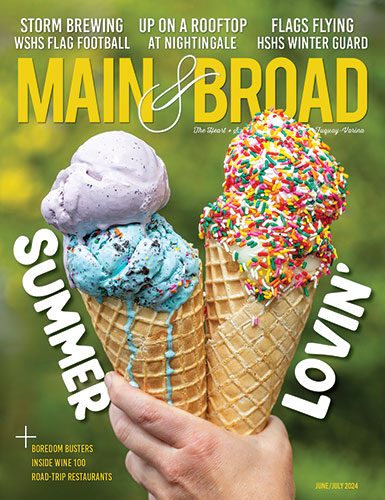She’s the friendly neighbor you might chat with at the mailbox. But behind closed doors, Margaret Maron plots murder.
Maron is the award-winning author of more than two dozen novels, including the Judge Deborah Knott murder mystery series. Set in various North Carolina locales, including the fictional Colleton County, the books’ no-nonsense heroine is a district court judge who’s the daughter of a bootlegger.
Also among Maron’s works are the Sigrid Harald homicide detective series, set in New York City, and two short story collections. Her characters are a far cry from her roots on a tobacco farm in Willow Spring.
“This is total fiction,” she said. “I grew up reading mysteries; it’s the way my mind works. I like the puzzle.”
Maron eagerly left the family farm as a young woman, traveling the world with her husband, Joe, during his military career, and living in his native Brooklyn, N.Y.
Along the way, she worked on an assembly line (“I have no idea what I was making. I just tightened two screws and passed it on”), enjoyed secretarial work and even taught kindergarten at a NATO base in Italy.
“But one day, I just knew I had to get my hands in some dirt,” she said. The Marons carved out a wooded corner of the family homestead, building a vacation home that eventually sprawled into their full-time abode.
“I really love living in North Carolina,” Maron said. “We live among trees and flowers planted by the women of my family.
“For a long time, I thought all books had to take place in an urban setting. Then I realized that the tobacco barns of North Carolina could be just as exotic to New Yorkers and Angelenos as their cities were to me.”
It was here she wrote, and set, the first Knott novel, Bootlegger’s Daughter, which became a Washington Post bestseller.
Maron holds an Honorary Doctor of Letters from the University of North Carolina at Greensboro, and won the North Carolina Award for Literature in 2008.
Her accolades include the Agatha, Edgar, Anthony and Macavity awards for mystery writing, and her works have been translated into 16 languages.
“I’m a traditional fair play novelist — my sleuth doesn’t see anything that I don’t show my readers,” she said. “They can usually reach the same conclusion as my sleuth, just two pages earlier, if I’ve done it right.”
A night person by nature, her six- to eight-hour writing day often begins at 5 p.m. She’s currently on deadline for her next book, Three-Day Town, due to launch Nov. 18 at Quail Ridge Books in Raleigh.
When not writing, she enjoys her family, friends and tending her flowers, and reads widely.
“I’m not a celebrity; crowds do not part for me,” she joked. “But it’s lovely to make a living doing what you love.”
Her expert advice to aspiring writers? “Finish the book! I’ve read an awful lot of first chapters.”
Maron’s writing education began at the Brooklyn Public Library.
“Once I decided that if I was ever going to be a writer, it was time to start working at it, I gave myself a writing course,” she said. “The library was a rich resource, along with The Writer magazine. I never knew any other writers till long after I was published.”
For a dozen years, she wrote poetry she never submitted, and short stories published in national magazines such as Redbook.
Her ongoing education comes via conversation, observation, news reports (“If you assume everyone in an article is lying, it can give you ideas”), and a group of local judges she consults on Knott’s activities.
“I can run any question by them. If they say, ‘No, you can’t do that,’ then I go back and make the scene stronger,” she said.
Setting, too, is critical to her stories.
“You have to create a sense of place. I don’t want to be a naturalist catalog, but it makes a difference if the tree is a pecan tree or a live oak. I’m always aware of where the moon is in my books, whether the characters see it as rising or on the wane. That’s important to me.”
In her work, she contrasts North Carolina’s agricultural past with its high-tech and increasingly urban present, incorporating issues of public interest.
Also important is the human side of her characters’ ever-evolving lives. Knott, for example, married Dwight Bryant, a character from Maron’s first Colleton County book, the non-series Bloody Kin. Knott herself didn’t appear until five books later.
“I don’t outline. I don’t know who the killer, or sometimes even the victim, will be,” Maron said. “I leave it open for serendipity. But I would have given Dwight a sexier name if I knew they’d get together.
“I came face to face with Dwight at the grocery store one day,” she added. “The characters are all in my mind’s eye vaguely, like a blurry photo, but I always recognize them when I see them. Beginning each new book is like going to hang out with friends.”






